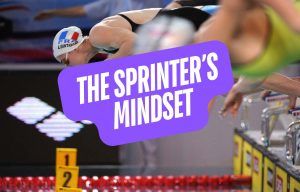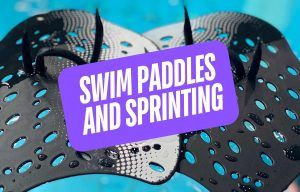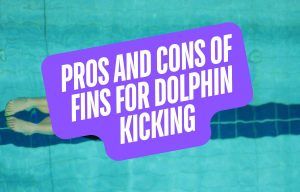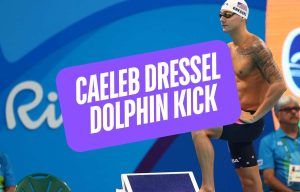Getting more sleep is the easiest way to swim faster this season. Here are some fun factoids about sleep and swimmers.
Competitive swimmers understand how important it is to work hard in practice, crush it in the gym, and to eat well.
You spend an endless amount of time drilling your technique, working your core strength, and developing the conditioning and strength to become a faster swimmer.
And yet, for way too many of us, we pass on one of the easiest ways to supercharge our performance in and out of the water. Getting lots of sleep is the easiest and dare I say it—most enjoyable—thing you can do to become a faster swimmer.
Quality time between the sheets is the ultimate performance booster: it helps you to recover faster, improves your mood profile (we all get a little cranky when short-rested), and yes, will help you swim faster over the long run.
Here are some fun facts about swimmers and sleep:
1. We don’t get enough of it (duh).
Swimmers have a gong-show schedule. During high school it looked like I was going on holidays each morning as I shuffled out the door for morning practice. With an overflowing bag for my swim gear, a bag for school books, and a bag full of food for the day, it looked like I was getting ready to conquer Everest.
By the time I got home I was generally exhausted, but still had to push through and get homework done before doing it all over again the following day. The days were never long enough for everything I needed to do.
As a result, when I needed more time to catch up with friends, finish homework, or whatever, it meant that sleep was the first thing to go.
While sleep deprivation isn’t particularly unique to competitive swimmers, we are particularly bad at getting anywhere near 7-8 hours a night.
When researchers followed a group of elite Australian swimmers during preparation for the Beijing Olympics, they found that the athletes averaged only 7.1 hours of sleep on rest days, and a paltry 5.4 hours when there was a morning workout the next day.
2. The harder you train, the more sleep you need.
The amount of sleep our body requires scales with how hard you are exerting yourself while you are awake. The harder the training, the more sleep you need to recover and bounce back.
Some nights your body will need ten hours, others you will feel great after seven. Shooting for an exact number of hours of sleep per night isn’t realistic as your sleep demands will be different depending on how training is going. The amount of sleep your body requires after a 1,500m loosen up swim is going to be different than the recovery needed after doing 20x400s best average.
Knowing this, plan naps and earlier bed times during particularly aggressive phases of training (Hell Week, or your holiday training camp, for instance).
Olympic champion Nathan Adrian focuses on getting 10-12 hours of sleep when training at altitude at the Olympic Training Center. It’s 8-10 hours at night, with a solid nap between workouts to help recover from the daily thrashings in the water.
3. The more intense your workouts, the harder it will be to sleep.
The inability to get good sleep after a high-intensity thrashing at the pool is one of the odd experiences of being a high-performance swimmer.
It doesn’t make sense on the surface of it: You go to the pool, sprint your brains out for a couple hours to the point that you are crumpled up on the pool deck, and then when you get home you have a hard time falling asleep.
Those super intense workouts stress the body in a big way. As you limp out of the aquatic center there is a lot going on inside of you: cortisol (the stress hormone) and norepinephrine (adrenaline) are spiking. It takes a while for your body to return to normal, with norepinephrine taking up to 48 hours to level out after all-out exercise.
This is another great reason to make sure you tack on a generous amount of active recovery to the end of those speed and power workouts.
In my own experience I’ve found that getting to sleep after those brutal speed-and-power workouts is much easier if I allow time for a 15-20 minute warm-down.
4. More sleep makes you mentally tougher.
Think back to the last time you were running on low sleep. What was your mood like? Probably not awesome, right? Sleep deprivation makes us grumpy. No big surprise there.
Restless nights of sleep also makes training feel harder than it would when regularly rested. Study after study has shown that perceived effort—how hard you feel you are working—spikes from sleep deprivation.
Which means that we are less likely to push ourselves when groggy and tired.
The dryland and swim workouts are hard enough already, no need to make them feel more difficult than necessary. In this way, being properly rested makes you mentally tougher.
5. And yes, more sleep means faster swimming.
Being rested is a great feeling. We feel fresh, energized, and ready to rock and roll. This translates into faster swimming.
When a group of varsity swimmers were told to increase their nightly diet of sleep by an hour they experienced significant drops in times in the water in just six weeks.
The study, done with swimmers at Stanford, found that reaction time off the blocks improved, turn time improved, and most impressively of all, the swimmers shaved an average of half a second on their time to 15m.
That’s an absurd amount of improvement for something as simple as getting a little more shut-eye each night.
The Next Step
Getting more sleep–and the improvement and enhanced recovery that we get from it–is one of the best gifts swimmers can give themselves.
Knowing you need more sleep isn’t the issue swimmers face—it’s managing your time and making it a priority to get into bed earlier that is the challenge.
There are some simple things swimmers can do to get more sleep:
- Turn off the smartphone at night. Laying in bed while scrolling through your social feeds will keep ya perked up. Power down the screen in bed and put the phone across the room to remove the urge to check it.
- Plan out naps. If you can’t get more sleep at night work on getting a power nap somewhere in the middle of your day. A 30-minute nap is enough to help boost mental and physical performance after a 4-hour night of sleep.
- Time management. At the end of the day this is the biggie—you need to prioritize sleep by wrangling the rest of your schedule. Stay on top of your schedule by working to get ahead of your schoolwork, planning and prepping meals, and creating a cut-off time each night for you to begin preparing for bed.
More Stuff Like This:
Nutrition for Swimmers: The Ultimate Guide to Fueling Up Faster Swimming. From creatine, to hydration, to eating tips for swimmers, here is everything you need to know about eating for high performance swimming.
How Much Should Swimmers Sleep? Being properly rested has always been recognized as a fundamental part of our performance in the pool. Here is what you need to know about how much swimmers should sleep.
 Want more help with mental training?
Want more help with mental training?
Whether you are tired of choking on race day, want to finally conquer your mindset so that you can give your PB’s the beating they deserve, or you want to develop a killer game plan for your mindset, Conquer the Pool is your ticket to faster swimming.
Used and trusted by some of the top clubs and swimmers on the planet and written with the feedback of 200+ head coaches, Olympians, former world record holders and NCAA champions.

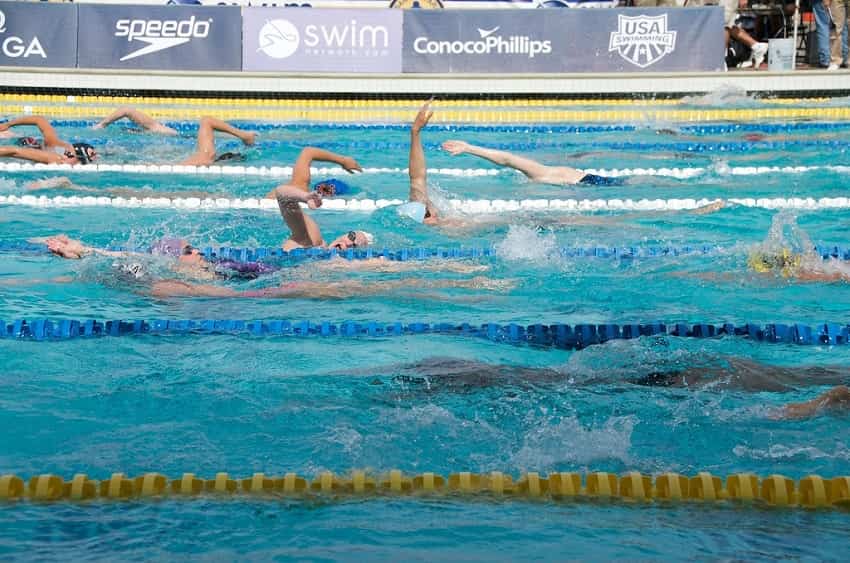
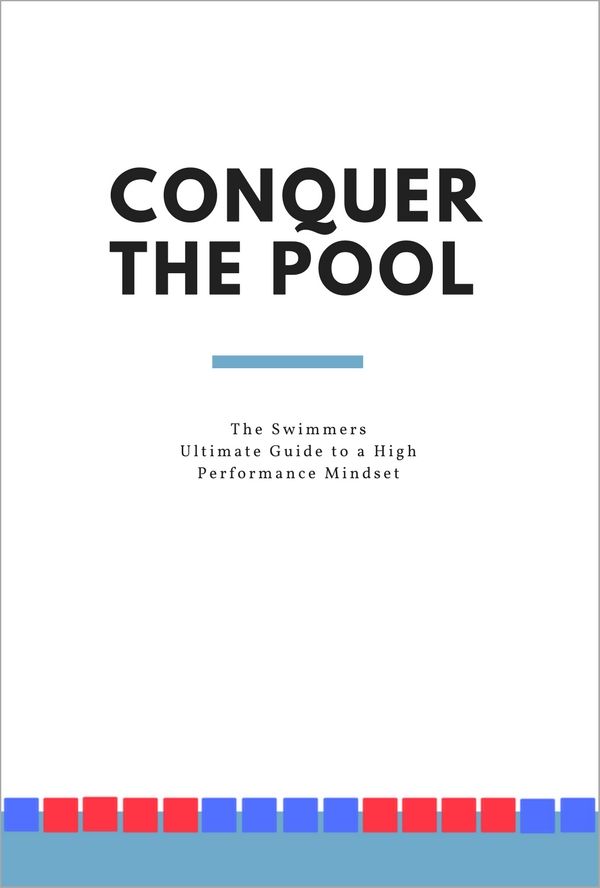 Want more help with mental training?
Want more help with mental training?



